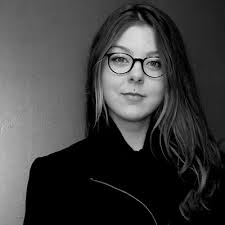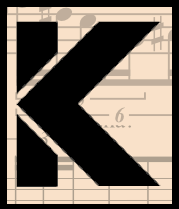
What got you started on the path of composition? Was it an avenue of music you’ve always explored?
Hmm, I guess it's the only medium (i.e. concert music) that made sense to me creatively. The controls and parameters attributed to it seemed more malleable than the other musical endeavors I participated in over the years. In my youth I was heavily involved in electronic music and record spinning but I couldn’t really connect with the plethora of tools the latter offered...it wasn’t that electronic music was too vast but rather my capacity to utilize it fell short. On your website you describe your ambition as composer as wanting to “produce a tactile exploration based on one’s physical awareness and elements of allurement.” Could you talk about that in more detail? In my work communicative engagement is consequential. Just as speech changes meaning through context, so do instrumentalists and composers when communicating with one another – whether through musical material or direct interaction(s). There is a natural elegance that seems to derive from the inconsistency of individual artistic processes and ideologies even when said processes seem to fully contradict one another. This delicate balance requires a level of stamina and patience, while provoking a disturbed intuition from myself, the performers, and ultimately the listeners. The apparent and not-so-apparent tensions in my work are ever-present, desiring reconciliation through a purging that can only be attempted in live performance. These anxieties or rather delicacies surrounding the physical exhaustion and execution of pitch/intonation/gesture etc, are not always aurally realized. However, the embodiment of such exhaustion is not for the listener but for the performer, solely. By indulging/wavering this aspect I feel it provides an intrinsic value to the realization of my work. I tend to avoid blatant extended techniques but they are inevitably there. And the abundance of timbral options are present but need little coaxing to bring to fruition. I tend create a music based upon involuntary bodily gestures, focusing on physical or psychological responses through neurotic repetition and the negotiation between reflection and agitation before repose. The intention of my work is to reveal these patterns of inconsistency through notational direction. I feel this is a wonderful opportunity to promote a truly collaborative effort between composer and performer. Directed (not distributed) subjectivity is a common theme in my music and though, controlled more and more, I try to refrain from imposing more than is necessary on the performer and their interpretation of my music. What derives from this are dualities of reality. A sense of control and a lack thereof, ultimately revealing that tranquility only suspends chaos it does not negate it. Would you say that the concept of physical gesture is an important compositional element in your music? In other words, are you concerned with the way a performer moves in order to create a sound, or more interested in the resultant sound regardless of how it may be produced? Yes, yes, and no? I guess that depends on the work itself. At times I indicate very specific physical/bodily gestures to create the “sound” I am aiming for. With that in mind I am fully aware that all bodies are different and the way one achieves said gestures will be altered at some point. My biggest concern is the mind-set and physicality of any given gesture attempted. I want/hope for the performer to engage in that way. I saw on the Spektral Quartet’s website there is a write-up about your music in which you talk about exploring the “latent instability of seemingly fixed gestures” and the use of improvisation in your music. Where does the instability come from, and how does improvisation play into this idea? I use a lot of repetition in my work and through notational direction (variation and nuance) I hope to evoke a sort of individual pathos from the performer through directed subjectivity. Whether this is conscious or not is of no concern to me. The improvisatory aspect usually presents itself as fixed specific gestures that the performer has the agency to decide the order of given pitches, the duration of rest, the frequency of dynamic change, etc. I’ve also presented audio scores to performers to internalize/memorize and reinterpret. This is kind of a 2-part question, but in that same write-up on the Spektral Quartet website you also mention the importance of the interaction of the performer and the score (in relation to the instability of gestures mention above). I think that’s a really fascinating approach to notation. Could you talk a little more about this interaction? Part 2, how is the interaction you’re striving for different from the way a performer would interact with other scores? Is it through complex notation, improvisation (mentioned above) or something else entirely? I “try” to break away from the traditional discourse between performer and score. As a composer the various indeterminate processes and the implementation of those processes through said compositional choices, and the performers’ interpretations of those choices create a specific psychological interaction between the performer, the score, and the performer(s) and at times the conductors’ compositional role. This produces an aural palette that is not inherently dictated by the score itself. The loose limitations and the demands of the score through notational choices create an interdependent relationship between the score, instrumentation, and the performer(s) interpretations, enabling a finite number of possibilities prescribed in the notation. On the one hand, the composition promotes an unregulated encounter between instrumentalists. On the other hand, this encounter shapes sonic realizations that may only occur based on the nature of the gestures themselves. These sonorities only come into being through the pre- performance and the interpretive work of the performer(s). The latter pushes performers to apply the given notation to an external context; they must draw meaning from seeming chaos and discern that the notation is not the only parameter they must interpret. Through their investigation they discover specific sounds and musical actions. The notation demonstrates an inherent “theatricality,” and at times the placement/staging of the gestures about the page encourage the performer(s) to turn away from the wider environment in search for meaning. They must wander around within the proverbial “box” to unlock the nature of the work. Again, consequently there is a great deal of subjectivity that is necessary for my compositions to progress. In essence, every performer has a unique perspective resulting from their individual experience, background, aesthetic preference, and circumstantial specificities surrounding the performance. But there is a limit to this potentially infinite musical range, and that is a limit that can be attributed to the properties of the music itself. However, it must be understood within a certain shared cultural context. This further posits the idea that implication is entirely contained within the objective structures of the work, meaning that all possibilities are and always will be present in the score. That is not to negate the fact that the performer(s) response or engagement with the work does not wholly shape the general character and outcome of the final product. Your pieces often have evocative and poetic titles. Beyond what has already been discussed, where do you find inspiration for your music? Also, more generally, what is the connection of the title to the concept of your pieces? The more I am asked these types of questions the harder it is for me to keep my self-serving artistic integrity, hah. My titles derive from my poetry, from poets I revere, or from explicit definitions of individual words. I guess I would call myself an amateur poet? Poetry is the one medium that I can still call my own even though I am using my poems more and more in my compositions. Full circle, right? Now I’m exposing myself, however, I stand by this, my music is a way to deal with and purge personal trauma of all kinds. It’s a very painful, tedious, necessary, and fulfilling process nonetheless. Meaning, I compose things that are deemed aurally beautiful for the most part but from my perspective, the sources of material that create the work and how I ask the performer to engage is ugly, taxing, and awful. In that way, I win. Does that make sense? I find it more and more difficult to compose now because of multiple deadlines and expectations. I compose intuitively. I muse over an idea in my head long before I put the pen to paper. When I finally reach that point not one note or rhythm is dictated. It’s all text. Once I feel I’ve convinced myself what the work is to be then I attempt to translate that into musical notation. The idea/concept is either there or it isn’t. If it isn’t the performer(s) and I have nothing. As for the connection to the titles of my work and the work itself, the literal connection is for me, solely. I don’t care to share that publicly or to anyone who is not performing my music. Mind you, they have to ask before I offer that information. To go further, I don’t want to blatantly dictate a listener’s experience by giving them too much insight toward my personal intentions. That’s for you and them to decide. What are some current projects you are working on? Current projects are: cantos for oboe: for Vinicius Klos (Ensemble entreCompositores) August 22nd Paraná, BRA III Bienal Música Hoje closing concert the presence of slumber: for soprano and electric guitar: Amanda DeBoer Bartlett and Jesse Langen (Resonant Bodies Festival) September 10th, 7:30pm Abrons Arts Center - Underground Theatre, NYC the other is contained in the one (divisions of opacity): for string quartet w/ Austin Wulliman, Clara Lyon, Doyle Armbrust, and Russell Rolen (Spektral Quartet) October 16th & 17th Chicago, IL new work: for Ensemble Linea TBA Evanston, IL i am the women of sabine. i no longer fear abduction.: for solo cello: Amanda Gookin TBA new work: for International Contemporary Ensemble (ICE) w/ New Music USA TBA And the final question, the desert island list, what are the 5 pieces/composers (regardless of genre) that you would say have had the most impact on your life and career as a musician? In no particular order: Mahler- piano quartet Bartok- music for strings percussion and celesta Black Sabbath- megalomania Leon Russell- stranger in a strange land Lenny Williams- cause I love you PS this was a very hard and unfair question ;)
0 Comments
Leave a Reply. |
Early Reflections contains interviews with emerging and currently active composers. Check out the archives to see a list of previous interviewees!
Full Directory of Interviews |

